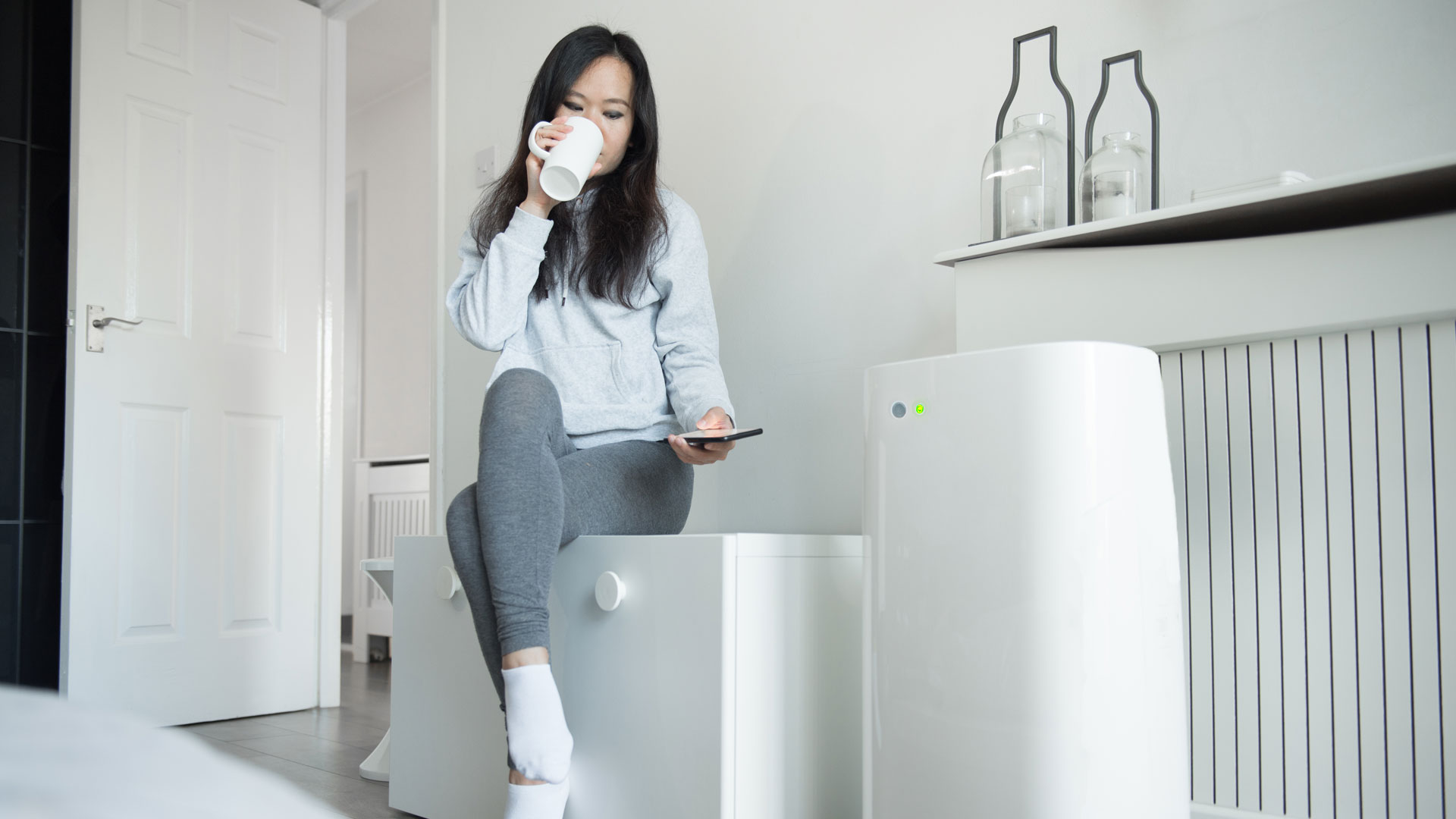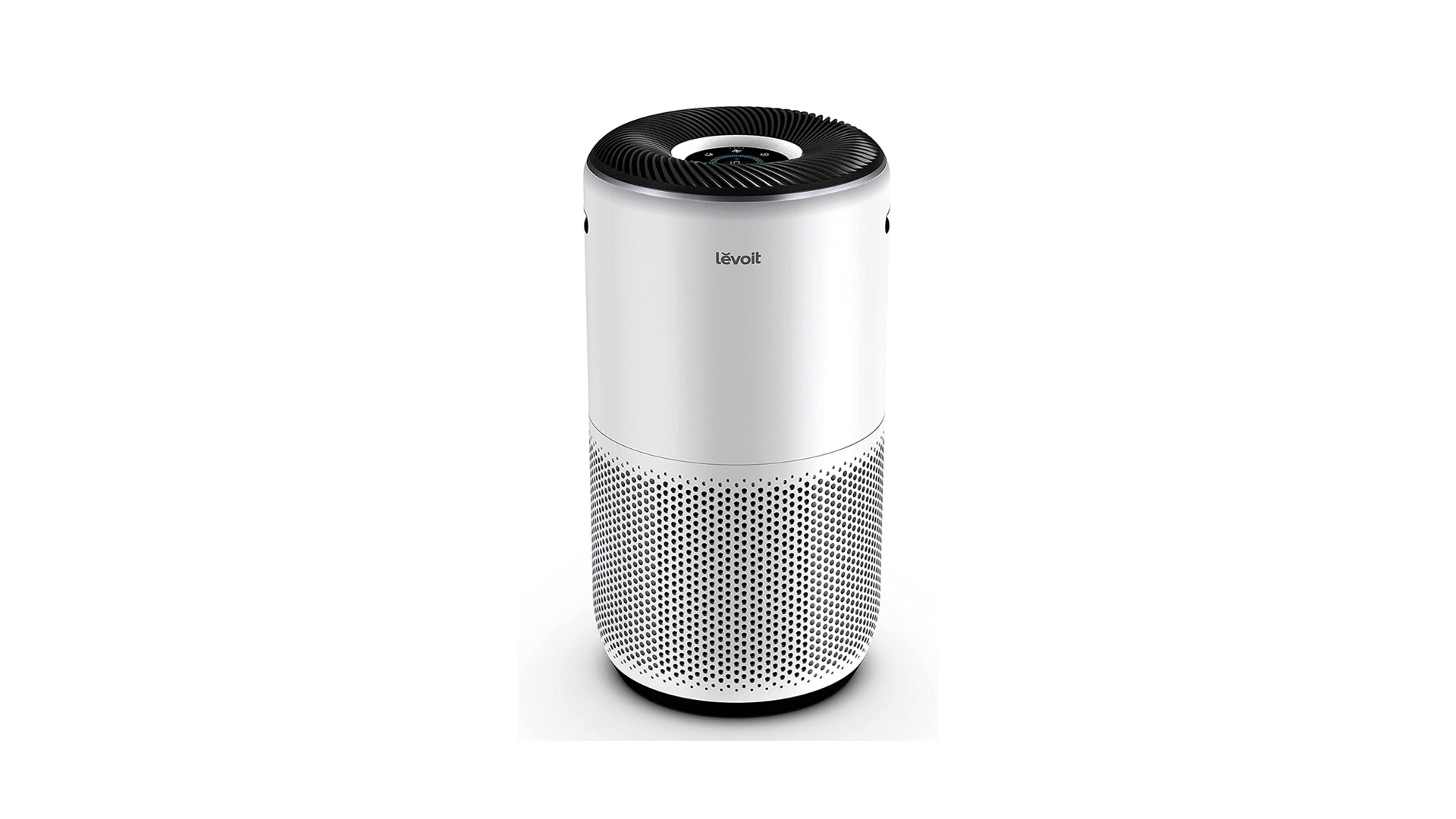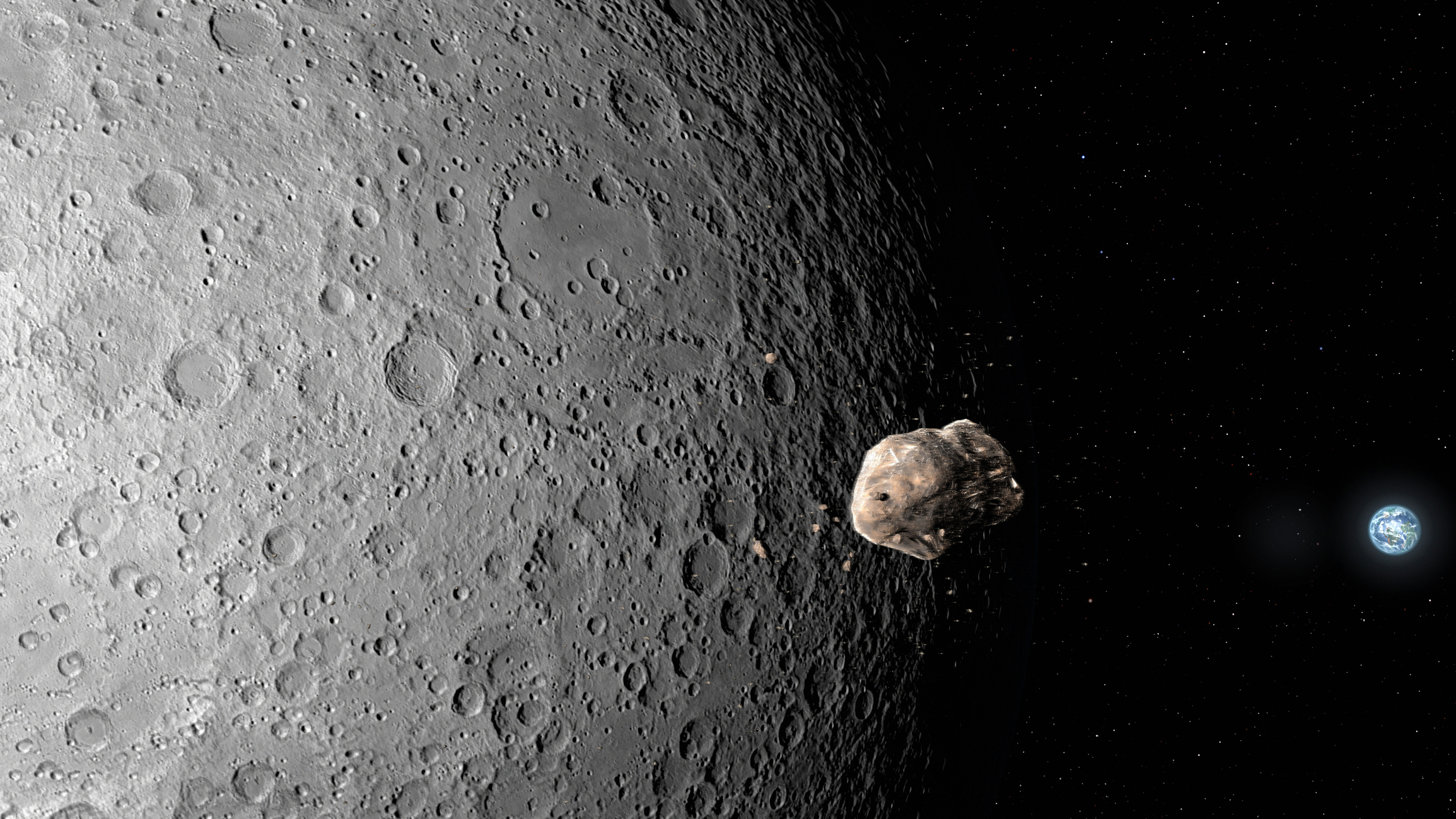Air purifier myths debunked: What you need to know
Air purifiers come with a whole array of myths and misconceptions. We've examined some of the most common to give you a better understanding of how they work

Get the world’s most fascinating discoveries delivered straight to your inbox.
You are now subscribed
Your newsletter sign-up was successful
Want to add more newsletters?

Delivered Daily
Daily Newsletter
Sign up for the latest discoveries, groundbreaking research and fascinating breakthroughs that impact you and the wider world direct to your inbox.

Once a week
Life's Little Mysteries
Feed your curiosity with an exclusive mystery every week, solved with science and delivered direct to your inbox before it's seen anywhere else.

Once a week
How It Works
Sign up to our free science & technology newsletter for your weekly fix of fascinating articles, quick quizzes, amazing images, and more

Delivered daily
Space.com Newsletter
Breaking space news, the latest updates on rocket launches, skywatching events and more!

Once a month
Watch This Space
Sign up to our monthly entertainment newsletter to keep up with all our coverage of the latest sci-fi and space movies, tv shows, games and books.

Once a week
Night Sky This Week
Discover this week's must-see night sky events, moon phases, and stunning astrophotos. Sign up for our skywatching newsletter and explore the universe with us!
Join the club
Get full access to premium articles, exclusive features and a growing list of member rewards.
Air purifiers are an increasingly popular way to tackle airborne pollutants in the home, including dust, pollen or particulates known to be bad for our health. While many of us may suffer from the short term effects of allergies, or worry about the long term consequences of exposure to pollutants, we may also not be clear on how air purifiers actually work. Getting to grips with this and understanding the science behind the devices, and how well they actually can clean up our homes, can help make informed decisions when it comes to deciding if an air purifier could help you, and which is the best air purifier to buy.
Good air quality is vital for good health. The World Health Organisation says the combined effects of ambient air pollution and household air pollution are associated with 6.7 million premature deaths annually. Improving air quality, both indoor and outdoor, has a huge impact. Thanks to the Clean Air Act and other measures in the US, between 1990 and 2020, national concentrations of air pollutants improved significantly. For instance, there was a 73 percent reduction in carbon monoxide, 41 percent for annual fine particles (from 2000), and 91 percent for sulfur dioxide.
Since the COVID-19 pandemic, many more people have also become concerned about mitigating the risks of aerosol-borne diseases. Combine that with increasing traffic pollution as well as other causes of pollution such as wildfires, and it’s no surprise that many of us have been looking for ways to reduce ourr exposure. However, an air purifier isn’t a cure-all solution. We have looked in depth at some of the claims made by manufacturers and explore the truth behind the promises. With these common air purifier myths debunked, you’ll better understand how these home appliances might benefit you and your family. And if you need to know more, take a look at our investigation into how air purifiers work.
- Related: Dyson air purifier deals
Types of Air Purifiers
However, before we tackle and debunk some of the myths around air purifiers and their use, it’s worth a quick look at the different types of features they contain, and briefly explain some of the common terms used in air purifier explanations.
HEPA filter: HEPA is an acronym which stands for High Efficiency Particulate Air filter. This type of filter will remove more particulates from the air than a purifier without one. In fact a HEPA filter can theoretically remove at least 99.97% of dust, pollen, mold, bacteria, and any airborne particles with a size of 0.3 microns (µm). However, do keep an eye out for terms such as HEPA-type or HEPA-style filters, as they may not conform to industry standards. Furthermore, do note that HEPA filters cannot remove all viruses - at least those smaller than 0.3 microns.
Carbon filter: an air purifier with a carbon filter will also capture gases and volatile organic compounds (VOCs) that are released from common household cleaning products and paints.
Sensors: if your air purifier contains an air-quality sensor it should activate when it detects pollutants in the air. It may also provide live information about the quality of the air in the room it’s situated in. In addition, a smart air purifier (one that’s connected to the internet) will send detailed reports directly to your smartphone, so you can easily monitor your indoor air quality from wherever you are.
Get the world’s most fascinating discoveries delivered straight to your inbox.
Air purifier myths debunked
Air purifier myths: They’ll improve your health
It is entirely possible that an air purifier could improve your health, but only if it happens to capture the particular allergens that are causing you symptoms. Air purifiers filter some pollutants from the air, so if you suffer from asthma or allergies, then you could indeed benefit from using one your home.
If someone in your family has a pet allergy, they can also help. The British Lung Foundation explains that if that’s the case, a purifier fitted with a HEPA filter is recommended to remove pet dander (which can trigger the allergy) from the air. However, as Dr. John O Warner OBE – Emeritus Professor of Paediatrics, National Heart and Lung Institute, Imperial College London – told Live Science, dust mites or pet dander can’t be captured completely, particularly if they are embedded in furniture or carpets.
So while the claim that air purifiers will improve your health is not technically a myth, it really depends on finding a system that works for the individual, and reduces whatever it is that is causing a reaction in them. Asthma UK also warn that it’s really important to check that the air purifier is ozone-free before making a purchase, as some emit low levels of ozone that can actually make asthma symptoms worse. As always, if you are experiencing health issues or are unsure as to the best way to manage a diagnosed medical condition, it’s important to seek medical advice.

Air purifier myths: If you have an air conditioner, you don’t need a purifier
This is an easy myth to debunk - it simply isn’t true. Some air conditioners may come fitted with basic filtration systems, but they can’t filter out the microscopic particles that a HEPA filter will capture. The primary function of an air conditioner is to regulate the temperature in a room, and they are simply not designed to capture airborne particles or pollutants. What you can do, of course, is use both an air conditioner and an air purifier at the same time, to keep the room temperature at a desirable level and clean the air at the same time.

Air purifier myths: Air purifiers need a HEPA filter to work
Almost all air purifiers work by using a fan to draw in air, pass it through a filter (or multiple filters) and recirculate it. So they will hopefully all remove some particles from the air. However, an air purifier with a HEPA filter, which consist of multiple layers of mesh made from interwoven glass fibers or synthetic materials, will remove more.
“A HEPA filter will filter particles down to 0.3 of a micron, and that's 99.9% of all particles down to 0.3 of a micron, which includes pollen grains, house mites and pet allergens, all of which are slightly larger than that," said Dr Warner. “However, an air purifier will only filter out these particles within the zone created by the system. And with most purifiers, the zone is almost non-existent."
- Related: Do indoor plants purify air?
Air purifier myths: Air purifiers will protect you against COVID-19
Since the Covid pandemic, many studies have shown that air cleaners with HEPA filters can indeed remove COVID-19 particles from the air, so this is in fact not a myth. A review by SAGE for the UK Government in 2021 concluded that air cleaning devices using HEPA filters or germicidal UV were most likely to achieve safe and effective bioaerosol removal.
An effective HEPA-filter fitted air purifier can therefore protect you against virus transmission, but only to a certain extent, and only where you are using it. “Viruses are below the limits set by HEPA filters," added Dr. Warner. “Viruses are usually in aerosol, so an air filter might be able to trap viruses where the aerosol has evaporated off, which could have some benefit. It will, however, deal with bacteria, which are mostly about 0.3 microns."
Dr. Warner recommends the best approach is to ensure indoor spaces are well ventilated. “Allowing the airflow to take particles away by having a door or a window open is often better than having an air purifier," he said. You will also probably be in spaces without air filtration, so it’s unlikely you can be entirely protected.
Helen Alexander is a London-based writer, who has previously held managing editor positions at a number of publishing titles, and has project-managed content hubs for a number of global brands, including Bupa, Pfizer and Siemens. Having turned freelance four years ago, she now specializes in writing about health, travel and food.
 Live Science Plus
Live Science Plus






